Women Are Like That

Brief Synopsis
Cast & Crew
Stanley Logan
Kay Francis
Pat O'brien
Ralph Forbes
Melville Cooper
Thurston Hall
Film Details
Technical Specs

Synopsis
Claire King, daughter of advertising magnate Claudius King, leaves Martin Brush at the altar to elope with Bill Landin. All three men work for the New York advertising agency Brush-King. Unknown to everyone, Claudius has embezzled money from the company. He sails for Europe, leaving behind him a failed company. Out of loyalty and a sense of guilt toward his father-in-law, Bill offers all his stock in the company to cover the debt and continues to work for a very small salary. He gives up all decision-making rights in the company on the condition that Claire will never be told what happened. Under Martin's leadership, the company holds on to its old accounts, but they are not getting new business. Bill is so disturbed that he starts drinking heavily. Concerned, Claire tries to help, and when she manages to land a new account by pitching Bill's ideas, she feels proud. Bill is angry, however, and quits his job to take a steamer around the world. Claire builds on her success and takes a job at Brush-King, using her maiden name. Martin still wants to marry her, and Claire is considering a divorce when Bill returns. He stops drinking and accepts a job offer at a rival agency. Bill leads the company to success, taking away many of Brush-King's accounts. When Bill's company offers to buy Brush-King, Claire resigns, and when he asks her to stay, she demands a divorce. Bill agrees, but while they wait in the judge's office, they realize how much they love each other and they reunite.

Director
Stanley Logan
Cast

Kay Francis
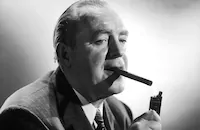
Pat O'brien

Ralph Forbes

Melville Cooper
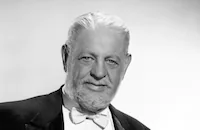
Thurston Hall
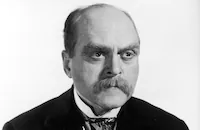
Grant Mitchell

Gordon Oliver
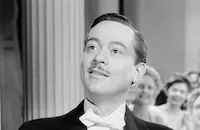
John Eldredge
Herbert Rawlinson

Hugh O'connell
Georgia Caine
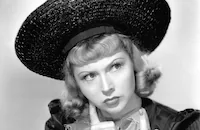
Joyce Compton
Sarah Edwards
Josephine Whittell
Loia Cheaney
Edward Broadley
Phyllis Claire
William Hopper
Bernice Pilot
Harry C. Bradley
Crew

Film Details
Technical Specs

Articles
Women Are Like That
Willie and Claire marry, and appear to be the ideal couple: good-looking, privileged, and utterly enraptured with each other. That is until Claire's father Cladius King (Thurston Hall) absconds to Europe, squandering the fortune of the advertising firm where both Willie and Martin also work.
Willie makes his fellow employees swear not to tell Claire that her charming swindler father has sent the company into economic distress. As Willie struggles to keep the firm afloat, and Martin nearly ruins the company with his penny-pinching, Claire has a brilliant idea. She will use her personal sex appeal and animal magnetism to sell a client on a pitch for Bel-Ami beauty products, the same pitch that her husband prepared but then discarded.
Claire's first foray into the business world is a smashing success and a boon to her husband's struggling company. But she also incurs Willie's wrath. Her husband is threatened by his wife's venture into business and the feeling that he is being upstaged by her success. He sees Claire's actions as a personal affront and runs off on a drunken, whirlwind world tour to escape what he apparently sees as his wife's emasculating power. While Willie flees the humiliation of having a working wife, Claire rises in the business world, becoming a role model to other career women. Eventually, Claire and Willie become business rivals. But, as was typical for the time when a happy union was privileged above all, Women Are Like That concludes with the status quo affirmed. Adapted from the Albert Carr story "Return From Limbo" Women Are Like That was the second Carr story brought to the screen following Let's Get Married (1937) starring Ida Lupino.
Made near the end of her Warner Brothers contract, Women Are Like That spotlights star Kay Francis as her usual charming sophisticate saddled with a husband who is not her equal in either humor or forward-thinking. Known for her witty and elegant roles in films like Ernst Lubitsch's Trouble in Paradise (1932) Francis was also a serious fashion plate whose female fans flocked to see her glamorous onscreen wardrobes. In 1937 Francis was named the sixth most popular female star with a weekly pay upwards of $5,000 to match that status. Though at one time tagged "The Queen of Warner Bros." her stint at the studio eventually disintegrated into enmity and conflict when Francis felt she was not getting the roles she deserved.
Francis launched her definitive legal battle with Warner Bros. during the production of Women Are Like That, anxious to end her contract with the studio. But her previous film also directed by Stanley Logan, First Lady (1937) did not help Francis's case. First Lady had been a critical and box office bust. It also signaled a real downturn in Francis's career. Compounding that downward slide, Women Are Like That was unfortunately not the big success Francis would need to buoy her career. Variety in fact, called it "another disappointment for Kay Francis," an unfortunately dismissive assessment of a film whose good humor and fair amount of charm is carried on the back of Ms. Francis.
Director: Stanley Logan
Screenplay: Horace Jackson (screenplay); Albert Z. Carr (story)
Cinematography: Sid Hickox
Art Direction: Max Parker
Film Editing: Thomas Richards
Cast: Kay Francis (Claire Landin/Miss Claire King), Pat O'Brien (William 'Bill'/'Willie' Landin), Ralph Forbes (Martin Brush), Melville Cooper (Leslie Mainwaring), Thurston Hall (Claudius King), Grant Mitchell (Franklin Snell), Gordon Oliver (Howard Johns), John Eldredge (Charles Braden), Herbert Rawlinson (Avery Flickner), Hugh O'Connell (George Dunlap).
BW-79m. Closed Captioning.
by Felicia Feaster

Women Are Like That
Quotes
Trivia
William Hopper is on studio records in the role of Larraby, but he was not seen in the movie. Sam McDaniel is listed in some modern sources as a porter, but he also was not seen in the movie.
Notes
The film's working titles were This Woman Is Dangerous and Return from Limbo.















